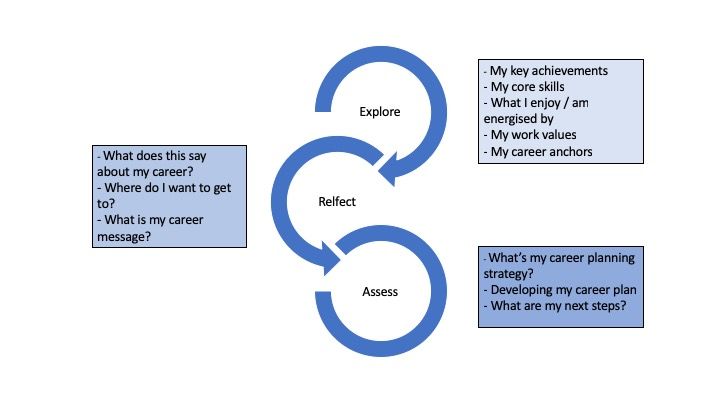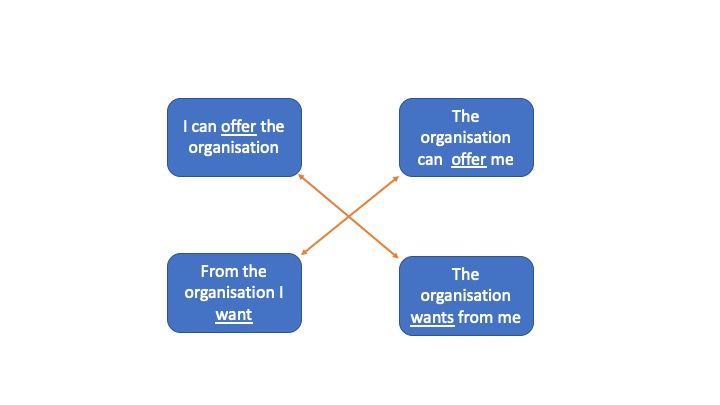This article is the third in a series aimed at leaders and managers who are working in an environment of significant or ongoing business change. Each article is a short and accessible ‘how-to guide’ focusing on one topic. They explore: why that topic is important and the risks of not addressing it; examples of what successful leaders have done to address that topic; the impact of those actions and the key learnings to take forward.
One of the pressures managers often feel during organisational change is that they want to support their teams to think about their future careers as much as possible. They often know the individuals well, their ways of working and what motivates them. They’ve seen how their values impact on their work and what’s most important to them.
Managers often feel a strong duty of care to individuals on a personal level as well as on behalf of the organisation.
The challenge is that there are often significant decisions to be made which can have a transformational effect on individual careers, lifestyles, and possibly financial health. When roles are changing substantially and new skills are needed, or when relocation or downsizing is an objective, there is much to consider. Everyone’s situation will be unique. Managers and staff often don’t have access to all the relevant information and sometimes decisions need to be taken before the picture is clear.
In this situation, the organisation risks it taking longer for individuals to move through their own personal transitions and therefore begin to perform effectively in the ‘new’ operating context. They could find the wrong people leaving. From the manager’s perspective, they may feel like they have not supported their teams adequately and this can have a long-term effect.
Individuals can miss out on any opportunity that the change brings for them, often unknowingly.
Career planning tools used alongside coaching conversations can ensure that the accountability and decision-making remain with the individual whilst thinking is progressed. One public sector organisation delivered a short refresher training course for managers to help prepare them for a large redundancy process. Managers used the GROWmodel as a framework for helping their staff to think through whether voluntary redundancy was for them. This was combined with an engagement strategy which ensured information was released as soon as it was available and that managers and leaders across the business were engaged in designing the new operating model.
Staff were given guidance which supported them in exploring, reflecting on and then assessing their careers in preparation for the conversation.

Often times during organisational change, there are changes to the psychological contract that individuals have with the organisation. The reasons why someone wanted to work with Organisation A no longer fits with the organisation’s new direction or strategy. Surfacing this change can be painful, but It gives individuals important information for them to determine their next steps.
This Alignment Model exercise was used to support career conversations across large groups during a downsizing programme. It gave managers a clear framework for these conversations, starting on the left-hand side with the individual. The model was first developed by Carole Pemberton and adapted for the organisation by Clare Withycombe.

The guiding principles for both these organisational interventions sought to:
- Empower individuals to explore the change and the impact on them from wherever they are right now.
- Avoid providing answers or direction and to support individuals to progress their own thinking.
- Assist individuals to identify their next steps.
The feedback from managers in both cases was that they felt better equipped to have conversations with their teams.
Staff engagement scores in the first example rose by 10% during a period where compulsory redundancy had been used for the first time in over a decade.
My key learnings to share are:
- Team and line managers can play a critical role in leading career conversations during the change. They are often the point of advice and support for individuals. We must prepare them adequately and work out what “adequately” means with them.
- One or two development models used consistently across an organisation can help to introduce a shared language and greater clarity during a complex change. Sharing career planning models, coaching people to use them and talking about them regularly facilitates useful conversations across large groups.
- Organisations often avoid having conversations that lead to people deciding to leave. They are seen as a ‘no go’ area for many reasons. Done in the right way, with the exploration process and decision-making being led by the individual, the decision to leave can be a good outcome for all parties involved.
What are your views? We’d love to hear about your experiences of the role of line and team managers play during change projects. Also, if there is a topic you’d like to know more about which is connected to change management, please let me know.
If you’re involved in a change programme currently and you want to explore the role of your Managers in supporting career conversations or any other areas of the change, please get in touch.
